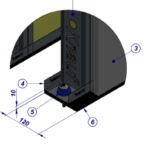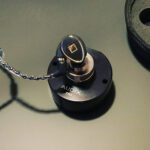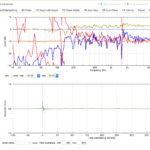FIR Filter Tuning
FIR (Finite Impulse Response) tunings provide linear-phase filtering. This can really help bring your studio set up to the next level. You can achieve a flat phase and flat eq spectrum for the ultimate reference. This in combination with aligning all your speakers in time will give you the best sound possible and the tuning side of your studio set up.
Maybe you’ve heard of it a long time ago or you stumbled upon it recently: Finite Impulse Response filtering. FIR filtering is included in loudspeaker processors and DSP based amplifiers because of the increase in performance-versus-cost of microprocessors and DSP hardware.
The advantages
- More arbitrary and fine control of a filter’s magnitude and phase characteristics
- Independent control of magnitude and phase
- The opportunity for maximum-phase characteristics
- Impulse response has a finite duration
- The impulse response will settle at zero
- They do not require feedback
- They are always stable
- They are easily converted to linear phase
So, what’s not to like?
You can read about the disadvantages of FIR Filtering, because they tend to be more CPU intensive than IIR (infinite impulse response) filters. However, the processing power of DSP’s can be so powerful these days that this won’t be an issue. Let us check this for you, to be sure.
You can also argue that the opportunity for maximum-phase characteristics are at the expense of some bulk time delay. Because we at MennoSoundStudio are trained to minimize the delay to less than 3 milliseconds, we mitigate this problem.
Let us advice you
Add this product if you want FIR Filter Tuning for your speakers or studio.
Still not convinced or having some doubts you want to discuss? Send us a message and let us help you a bit (or a lot!) further.
Get updates on special events and receive your first drink on us!
Govert Flinckstraat 58, 3817RZ Amersfoort
hello@mennosoundstudio.nl
Chamber of Commerce number: 75453495
VAT number: NL001561185B52






